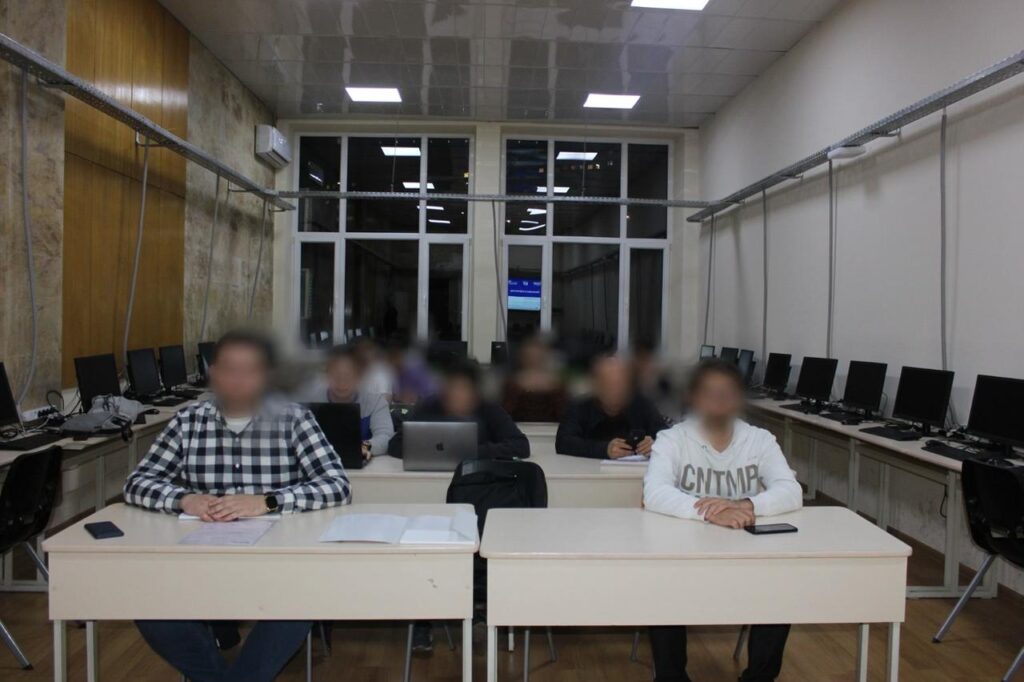
API Armenia Peace Initiative, in partnership with the French University in Armenia (UFAR) and the Enterprise Incubator Foundation (EIF), has just completed a professional training programme in cybersecurity. The course, designed and delivered by a French expert, Sébastien Barguirdjian, a cybersecurity lecturer at the University of Rennes and an entrepreneur in the IT sector, brought together a group of 13 students, both amateurs and professionals in the sector, for a deep dive into secure development practices, forensic investigation and network penetration testing techniques. A successful first experiment should be continued.
The overall aim of the course was to provide a comprehensive understanding of security risks, secure development practices, forensic investigation and network penetration testing techniques. Sébastien Barguirdjian emphasised practical application: exercises and concrete examples to reinforce participants’ skills and knowledge. This hands-on approach allowed students to test their knowledge in simulated environments, reinforcing their practical understanding. The Armenia Peace Initiative will continue to work alongside Armenian cybersecurity stakeholders in education, industry professionals and experts, providing them with complementary skills that are recognised internationally, to reduce Armenia’s vulnerability to cyber attacks in both the public and private sectors.
The programme, led by renowned experts -Sébastien Barguirdjian, Vahagn Vardanyan and Robert Tadevosyan – not only covered essential, core modules such as Introduction to Cybersecurity, Secure Development, Digital Forensics, and Pentesting but also allowed participants to focus on specific areas, with a particular emphasis on Pentesting. The overall aim of the course was to provide a comprehensive understanding of security risks, secure development practices, forensics and network penetration testing techniques.
Sébastien Barguirdjian emphasised practical application: exercises and concrete examples to reinforce participants’ skills and knowledge. The essential tools and technologies covered during the course included virtualisation using Virtualbox and Proxmox, and the use of distributions such as Debian and Kali Linux. This hands-on approach enabled students to test their knowledge in simulated environments, reinforcing their practical understanding.
The working atmosphere was characterised by team spirit, interactive lessons with question-and-answer sessions and feedback. The assessments, consisting of exams at the end of each module in the form of MCQs and reports, enabled students to demonstrate their progress in understanding the subjects covered. This experiment has been a success. Only one trainee encountered difficulties that could not be resolved, resulting in a failed examination. This performance underlines the effectiveness of the programme and the quality of the teaching provided.
The Armenia Peace Initiative will continue to work alongside Armenian cybersecurity stakeholders in education, industry professionals and experts, providing them with complementary skills that are recognised internationally. The links established during this training course will serve as a solid foundation for subsequent initiatives aimed at reducing Armenia’s vulnerability, in both the private and public sectors, to cyber-attacks. Armenia Peace Initiative intends to develop further programmes to support the continuous improvement of cybersecurity skills to strengthen digital resilience in the region.
